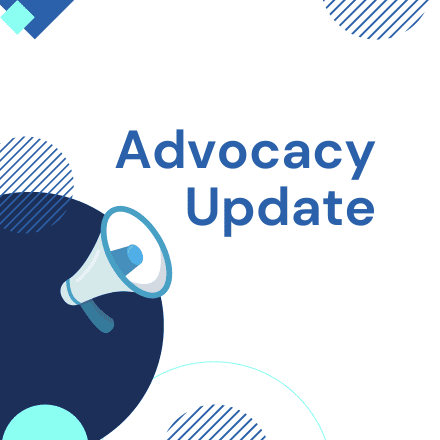Recent high profile opinion pieces have presented arguments to support the rollback of various on-campus COVID-19 mitigation strategies. Several of these arguments rest upon two assertions we believe to be without adequate evidence or factual support. These assertions are also inconsistent with our understanding of the existing data and ACHA’s experience supporting a diverse group of institutions of higher education (IHEs) across the country since the beginning of the pandemic.
In the meantime, on March 4th, 2022, CDC launched the COVID-19 Community Levels tool, which assesses the impact COVID-19 is having on health and healthcare systems to “help communities and individuals make decisions based on their local context and their unique needs.” These community-level measures have prompted extensive changes to state, local, and institutional COVID-19 mitigation policies based on factual evidence.
Nonetheless, because localized outbreaks and new variants pose an ongoing threat, it is important that these high-profile misleading assertions and arguments be carefully examined and thoughtfully rebutted.
Assertion #1: “All or almost all college students are fully vaccinated against COVID-19.”
We are not aware of a credible, nationally representative data source to support the assertion that all or almost all college students are fully vaccinated against COVID-19. There is no demographic item for “college students” in the CDC COVID Data Tracker, and the demographic items for ages (18-29) includes people not enrolled in an IHE. ACHA’s Campus COVID-19 Vaccination and Mitigation (CoVAC) Initiative partner Langer Research Associates secured a generous agreement from Axios-Ipsos to include a demographic question identifying college community members in its ongoing pandemic surveys. The January and February waves of this survey indicated that 76-78% of college students reported having received at least one vaccine dose (as opposed to fully vaccinated or up to date). We await further analysis, but there is reason to believe there are significant regional differences in this data. We also note that this data point is fluid as IHEs are transient communities, with significant numbers of students entering and leaving each year.
In addition, a significant number of IHEs do not, and cannot, know the vaccination status of their students. In multiple states IHEs are expressly forbidden from asking about students’ COVID-19 vaccination status.[i] State governmental interference in IHE vaccine documentation processes spiked in spring 2021[ii] and the Association of State and Territorial Health Officials expects this trend to continue in 2022. Even where permitted, vaccination status documentation processes do not exist at every IHE, as many IHEs are without sufficient resources to create and maintain these systems.
Though we celebrate the successes achieved at IHEs with high COVID-19 student vaccination rates, we cannot generalize from highly resourced private institutions to all or most IHEs. Historically Black colleges and universities, tribal colleges and universities, community colleges, small rural colleges, public IHEs in certain states, and other IHEs are likely experiencing the COVID-19 pandemic and vaccination uptake in very different ways than highly resourced private institutions in states with policies supportive of layered prevention strategies. Failure to acknowledge these differences renders invisible the inequitable circumstances some IHEs have managed throughout the pandemic.
Assertion #2: “All or most colleges (do/can) require students to be fully vaccinated against COVID-19.”
There is no evidence to support the assertion that all or most colleges require students to be fully vaccinated against COVID-19.[iii] There are over 4,300 postsecondary degree-granting institutions in the United States. We are not aware of any current, comprehensive repository of IHE COVID-19 vaccine requirements. The Chronicle of Higher Education tracker (prior to its removal from the Chronicle’s website) listed roughly 1,200 IHEs requiring the primary vaccination series for students. This is approximately 28% of the total number of IHEs in the U.S. Far fewer IHEs listed in the tracker (around 200-300) were requiring boosters.
There is clear evidence that many IHEs do not require COVID-19 vaccination, and some are expressly forbidden from doing so by state law.[iv] The CoVAC Initiative, through its various endeavors, has had the privilege of supporting college health professionals at institutions with such restrictions. The situation on these campuses is vastly different than that at institutions with COVID-19 vaccination requirements.
The rollback of specific mitigation strategies is appropriate where there is a high rate of students who are up to date with their COVID-19 vaccinations and where the rate of prevalence on campus and in the surrounding community warrant such action.
IHEs vary in many ways, and recommendations must be responsive to the unique characteristics of each campus, including but not limited to state and local restrictions; size and density of the living, dining, and learning environments; resources available; and other factors unique to each IHE. Generalizations about campus environments and assumptions about student vaccination rates or institutional vaccination policies have the potential to distort the national dialogue as IHEs continue to adapt to the rapidly evolving COVID-19 pandemic and the challenges that vaccine-preventable illnesses present overall.
[i] University of Arizona: “Please remember to not ask students or employees about their vaccination status. Vaccination status does not serve as a basis to limit student involvement in any academic activity.” The University of Iowa: “State law prohibits Iowa’s public universities from requiring proof of vaccination.” The University of Idaho: “The university is not tracking vaccination status.”
[ii] Selected examples include: Idaho Executive Order 2021 13; South Dakota Executive Order 2021-08 ; Texas Executive Order GA 38.
[iii] University of Tennessee: The University does not require the COVID-19 vaccination for UTC students or employees at this time. University of Arkansas: While state law prohibits requiring COVID-19 vaccination at this time, the university strongly encourages receiving the vaccine in order to support the safety of the campus work and learning environment, and our larger community. University of Montana: UM students and employees, as well as their partners, spouses and household members, and the general public are encouraged to receive the vaccine.
[iv] Selected examples include Texas and Arkansas.





